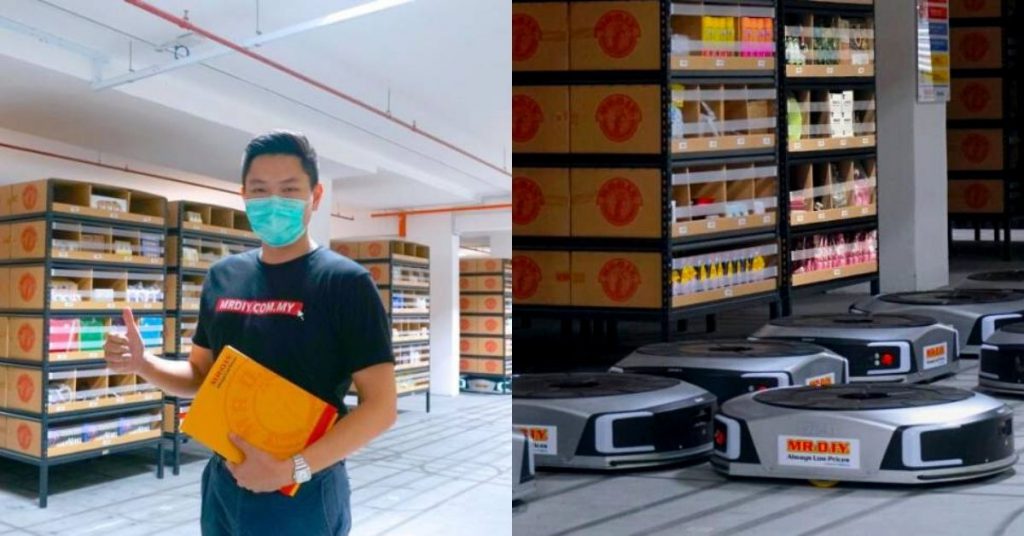Home improvement retailer Mr DIY has opened a robotic e-commerce warehouse in Seri Kembangan, Selangor. Up to US$1.22 million (RM5 million) was invested for the designing and building of the warehouse, which began back in 2019.
It spans 65,000 sq ft and is equipped with programmable robots that the brand states can fulfil online purchases faster and result in a 200% increase in operational efficiency.
According to its VP of marketing, Andy Chin, the warehouse would enable Mr DIY to process online orders at triple the previous rate, meaning that customers can expect to receive orders earlier.
However, having faster fulfilment would mean that its e-commerce platforms would need to be optimised as well. Its Lazada and Shopee stores aside, Mr DIY hasn’t neglected its own site either, as it’s quite easy to navigate.
The search system is accurate and intact, and there are specific filters to help narrow down any general searches you may have.
In terms of its product listing, it has over 20,000 products online in the categories of hardware, household and furnishing, electrical, stationery, toys, and more, so consumers have quite the variety of choice.
A Human Touch Is Still Necessary
This automation would mean that Mr DIY’s warehouses are seeing a shift in their labour force away from low-skilled jobs, previously carried out by workers who would sort, pick and pack, etc.
Rather than hire a new set of talent, Andy stated that they’ll instead upskill their warehouse employees in robotics and automation, which indicates that training will be provided.
Overseas, many look to e-commerce giant Amazon as a pioneer in robotic fulfilment centres. Its use of automation has greatly increased efficiency of its output, enabling it to carry out an Amazon Prime perk that offers users free one to two-day shipping.
But robotics can only go so far now, so human workers aren’t out of the equation. They’re still needed to manage and fix the robots, or to perform in-between tasks that the robots can’t do yet.
In 2019, Amazon dedicated US$700 million to upskill its employees in technical roles regardless of their prior experience. Employees were trained in software engineering and machine learning, to name some examples.
In part, this training led to overall increased efficiency in their fulfilment centres and other departments. Amazon reaped the rewards via a net profit in 2020 that was up by 84% after its yearly revenue increased by US$100 billion, with its sales for the year totalling US$386 billion.
It’s unclear what exact tasks the robots in Mr DIY’s centre will be doing, but the onus would be on the company as an employer to ensure that their talents are equipped to handle this change.
-//-
Despite this specific strategy to ramp up its e-commerce operations, it doesn’t seem like Mr DIY intends to slow down in the brick-and-mortar sector.
It’s already announced that it’s looking to open 175 new stores in 2021 across its 3 brands—Mr DIY, Mr Toy, and Mr Dollar.
In 2020 it opened 140 stores, bringing its total stores in the country to 734, with 683 under the Mr DIY brand as of February 2021.
Featured Image Credit: Mr DIY
